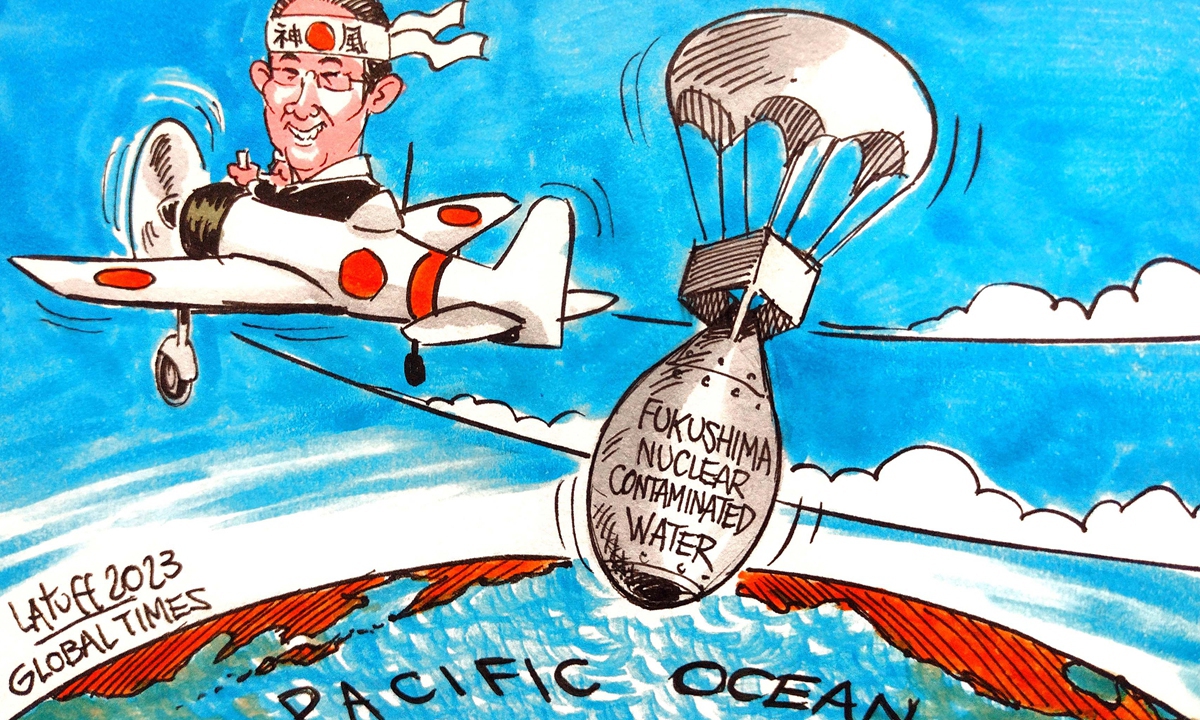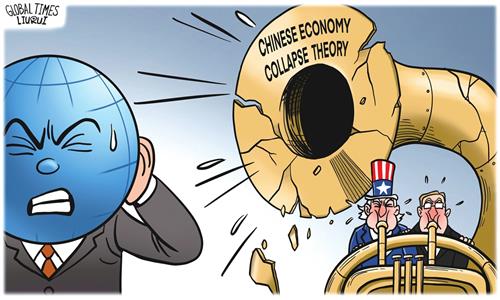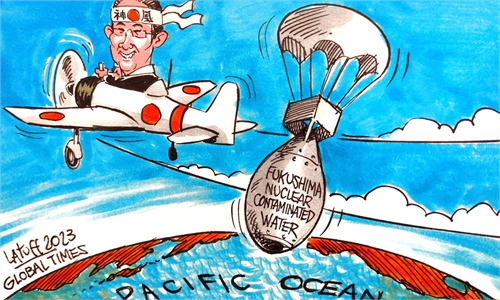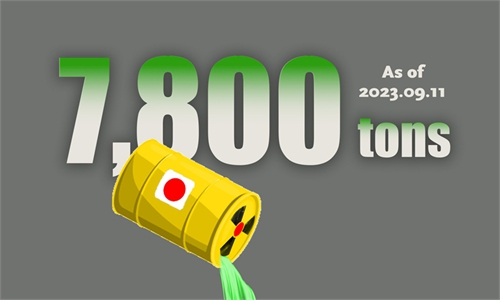
Japan drops the "bomb" of nuclear-contaminated water into the Pacific. Cartoon:Carlos Latuff
China proposed Japan establish a long-term and effective international monitoring arrangement with the full participation of neighboring countries and other stakeholders to address its controversial dumpofnuclear contaminated water into the ocean, a spokesperson from Chinese Embassy in Japan said on Monday, refuting reports allegingChina has refused to join an international monitoring mechanism.
Japan previously said thatit is the IAEA's decision to choose which country's laboratory to participate in analysis and comparison testing, and Japan did not participate. Japan's sampling and analysis were latterly approved by the IAEA.
Responding to the question, a spokesperson from the embassy said in a Monday's statement that some media reports claimed that "China refused to join the IAEA's international monitoring mechanism." The information released by Japan once again confirmed that this report was falseand untenable.
China was not invited to participate in the analysis and comparative testing of nuclear-contaminated water, the spokesperson said.
China has repeatedly emphasized that a long-term and effective international monitoring arrangement with the full participation of neighboring countries and other stakeholders should be established as soon as possible, the spokesperson said, noting if Japan is truly confident in its treatment of nuclear-contaminated water, it should respond in a serious and responsible manner.
According to South Korean media The Hankyoreh, Japan ignored the opposition of the international community and forcibly started dumping nuclear-contaminated water from the Fukushima nuclear power plant into the sea. Though the controversy, Japan even has used various means to prevent other countries from independently verifying water quality.
It has always opposed direct sampling by South Korea and other interested countries. The safety verification of Japan's nuclear-contaminated water now only relies on TEPCO's own sampling and analysis. South Korea's attempts to confirm Japan's compliance on the chemical composition of the dumping, depends entirely on the data provided unilaterally by the other party, according to The Hankyoreh.
Global Times



